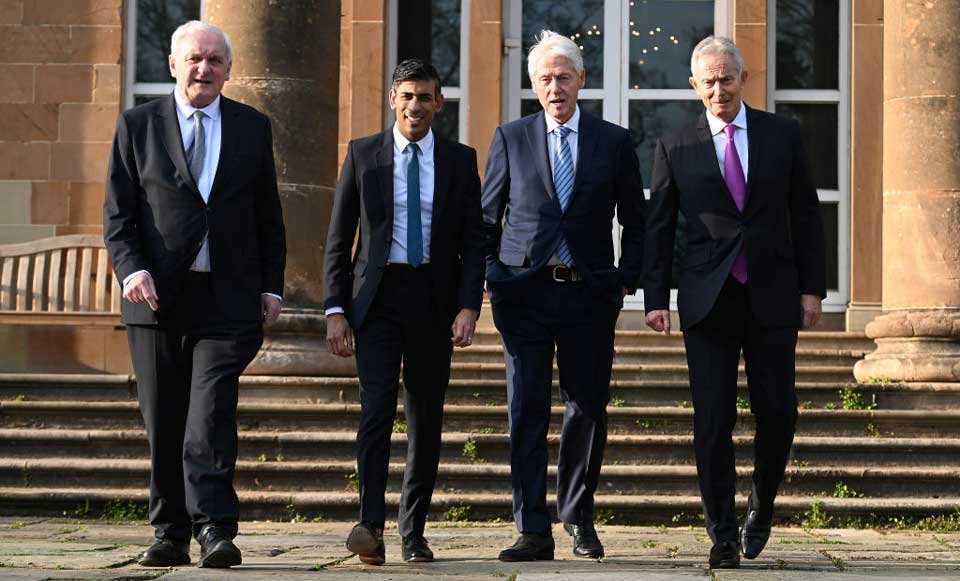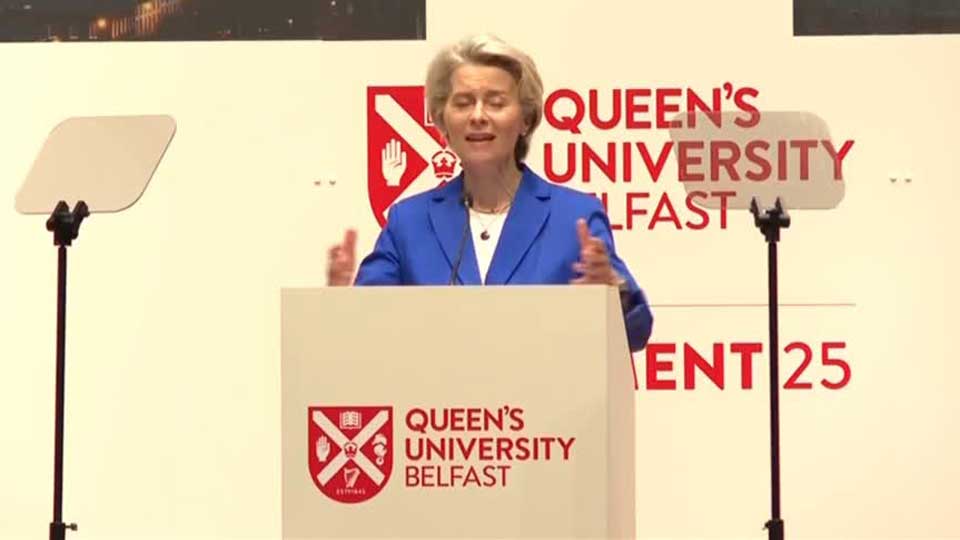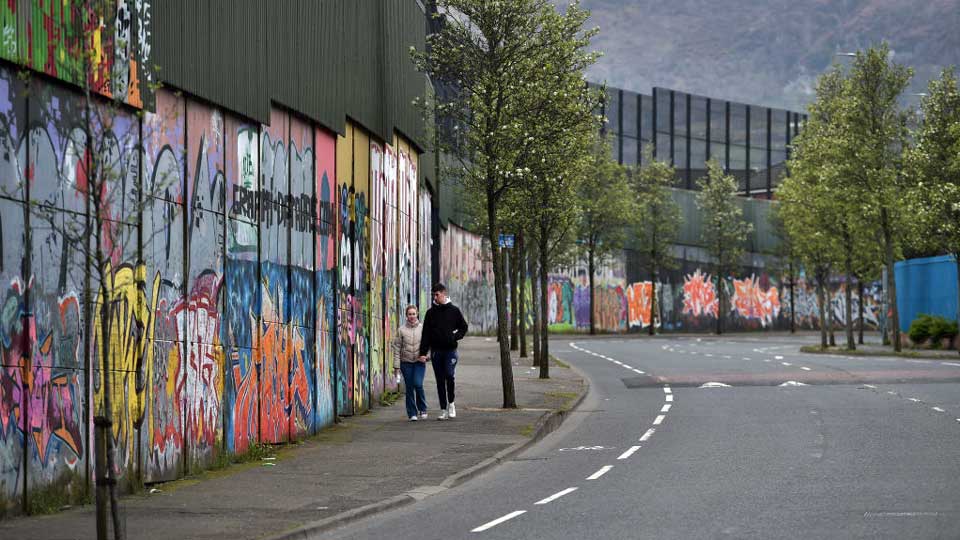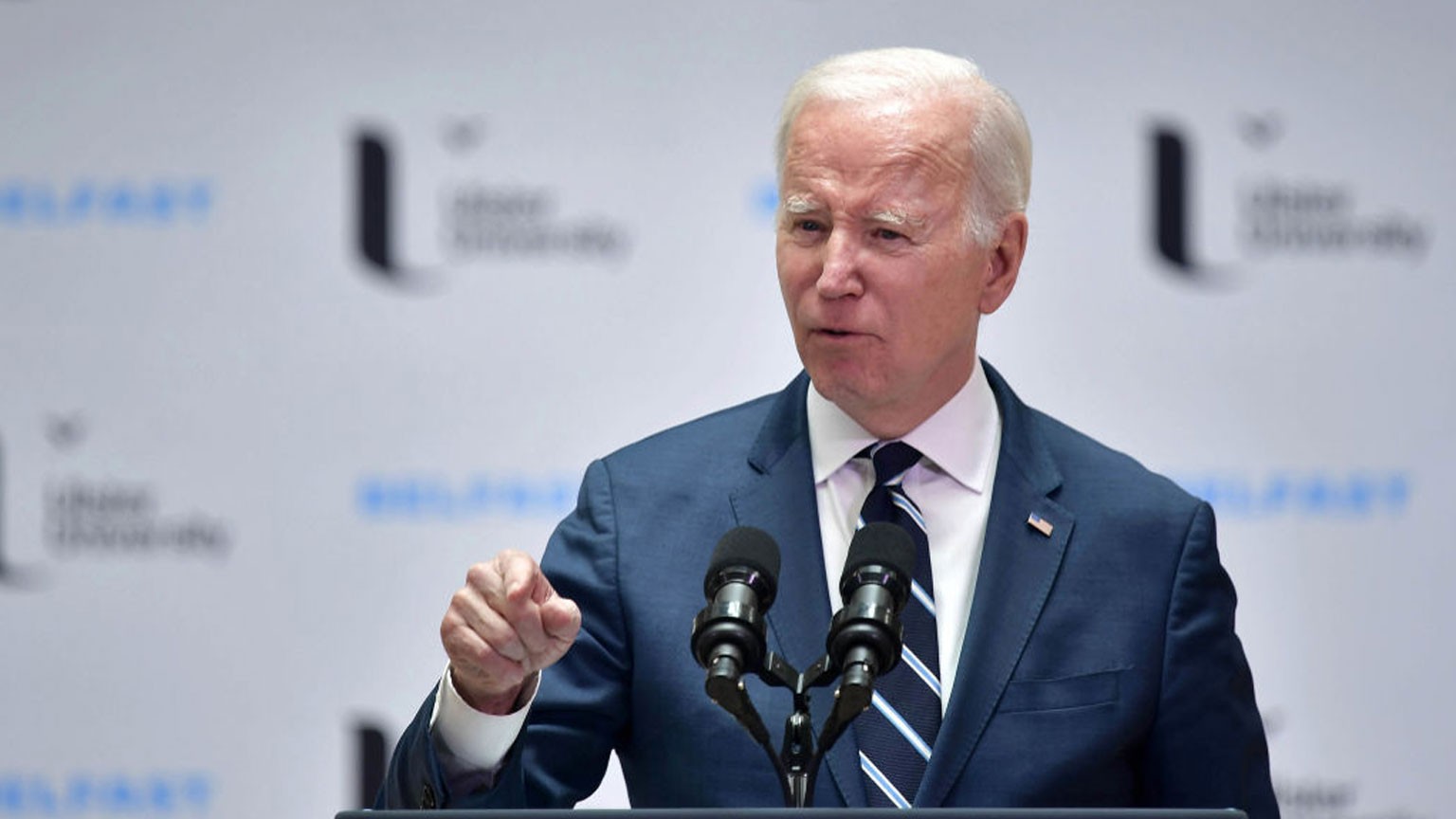The Good Friday Agreement (GFA) warranted this interest because it negotiated the end of the Troubles — the sectarian conflict that lasted from the late 1960s until 1998 in Northern Ireland. This period saw fighting between the Catholic community, many of whom wanted union with the Republic of Ireland, and Protestants, most of whom favored staying in union with the UK. The Republican-Unionist conflict resulted in some 3,500 deaths according to the British government.
One of the major achievements of the peace agreement was the creation of a devolved legislature, known as Stormont, which requires Republican and Unionist political parties to share power.
The last election saw Sinn Féin, the leading Republican party, win the most seats for the first time. But Stormont has not been functioning for over a year. Sinn Féin's Unionist counterpart, the Democratic Unionist Party (DUP), has boycotted Stormont due to the perceived threat of Brexit to Northern Ireland’s place in the UK.
Much has changed in the last quarter of a century but it is clear that challenges remain.

The past is not forgotten
Séanna Walsh is a Sinn Féin politician for Belfast City Council and former Provisional Irish Republican Army (IRA) member. He spent 21 years in prison and is one of the ex-combatants who were released as a result of the GFA in 1998.
"(The GFA) was an opportunity to move to a different type of struggle — a struggle where we could leave the armed struggle behind and move towards democracy in this part of Ireland," says Walsh.
But victims tell a very different story.
Retired policeman David Halliwell lost his father — who was also a community police officer — after he was targeted during the Troubles.
"He was 35 years old, left a wife and three children — I being the oldest at 13 years old. Four or five years later, I joined the police."
Earlier this year, Halliwell's former colleague Detective John Caldwell was shot and suffered life-changing injuries. Police believe the perpetrators were from the New IRA, a dissident offshoot of the now disbanded IRA.
Halliwell's father worked in the border town between Northern Ireland and Ireland known as Derry or Londonderry. While there, this month, NHK witnessed what locals call "recreational rioting." Teenagers set fire to objects including tires while a police vehicle patrolled nearby. These incidents are not comparable to what happened during the Troubles; however, they do show that a minority of young people continue to be susceptible to the appeal of violence.
Halliwell is now an Advocacy Support Worker for the South East Fermanagh Foundation (SEFF), a charity that supports survivors and victims of the Troubles across Northern Ireland.
Speaking about the legacy of the GFA peace deal, Halliwell says, "At that time I thought it's not perfect but it's a start, so I voted for it. But if I had to do it again, I just don't know."
Moving towards a better future
In April, Queen's University Belfast held a three-day conference to mark the anniversary.
Key figures in signing the GFA, including former US Senator George Mitchell, came together with serving British Prime Minister Sunak, his Irish counterpart Varadkar and President of the European Commission Ursula von der Leyen to remember the province's past and discuss the future.
A common thread through many of their addresses was a call for Northern Irish politicians to end their boycott and return to Stormont.

Dominic Bryan, a Professor at Queen's, was one of the speakers at the conference.
"I think probably there will have to be another huge political push to put the local assembly (Stormont) back together," he told NHK.
An equally strong message was for investment in Northern Ireland. The region has faced economic uncertainty since Brexit – which the local populace largely voted against.
Unlike the rest of the UK, by sharing a border with Ireland Northern Ireland has remained part of the European Union single market. But this has also meant checks and added costs for goods moving between the mainland UK and Northern Ireland. These trade barriers are why the DUP walked out of government.
In March, British Prime Minister Sunak and European Commission President von der Leyen agreed to the Windsor Framework. This intends to simplify checks on goods between Northern Ireland and the mainland UK through such measures as assigning items requiring different levels of scrutiny to separate lanes.
Willowbrook Foods, a food wholesaler, saw costs go up by approximately ten percent after Brexit and now has to plan orders a week, rather than a day, in advance.
"The Windsor Framework will definitely help. There are some businesses, especially ones that only focus on trade in Northern Ireland, that will be benefiting from it. But our business model is different. We will be still treated by the same rules and regulations as prior. So, it's not really going to benefit us that much," Chief Buyer Martin Huna told NHK.
Looking ahead, Professor Bryan suggests, "If this area becomes economically successful and it manages after Brexit, to sit between Europe and Britain and make the most of that, then I think the future could look quite good."
Shared spaces
Northern Ireland's capital city Belfast still has so-called peace walls, or barriers, that separate Catholic and Protestant areas. As gates open and close every morning and evening, the divide between communities continues.
Cooper McClure runs the Midland Amateur Boxing Club, which was set up just meters away from such a wall, and hopes to give kids and young adults the chance to get into boxing, whatever their background.
"They've been taught that you just box. Just get in and your friend is your friend, no matter what (background) he is," says McClure.

We are still in the early years of peacebuilding in Northern Ireland, with the 25 years since the signing of the landmark peace deal representing a shorter span that the Troubles that went before.
But a new generation, known as 'peace babies', is growing up in a peaceful Northern Ireland and things are certainly shifting — be it in politics, the economy, or fields including sports. Nowadays, young people are working in sectors such as tech industries and the arts, rather than shipbuilding or textiles as in the past. Perhaps the next 25 years will bring even greater change in Northern Ireland, as the generation who grew up in peace start to make their mark.

